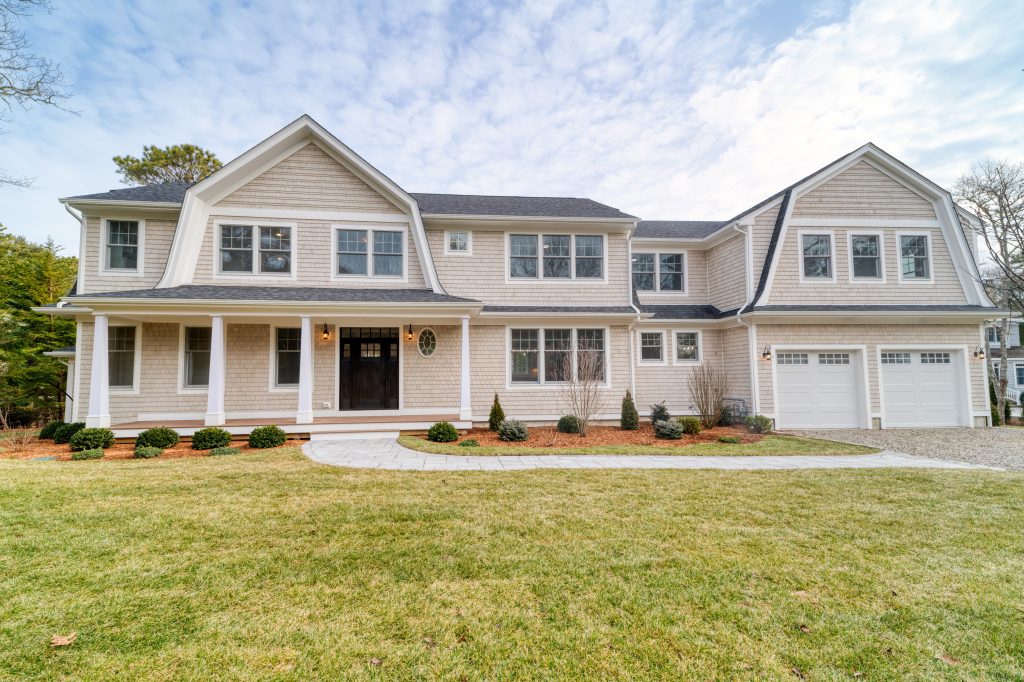What goes into a home appraisal?

Ever wondered what goes into a home appraisal? Today’s post tackles that topic. It is important to understand appraisals if you are thinking of building a new modular home or buying and selling any home. An appraisal is simply an unbiased estimate of the fair market value of what a home is worth conducted by a licensed professional. While you may have an idea of value, an appraisal is important to consider as it removes the emotional component of assessing a home.
Why are Home Appraisals Important?
- For Lenders: Lenders need to ensure that they are not lending more money than the home is worth. The appraisal protects them from the risk of the borrower defaulting on a loan that exceeds the property’s value.
- For Buyers: Buyers want to ensure they are paying a fair price for a home. An appraisal provides an independent assessment of the home’s value. Even if you are paying cash for the home, it may be a good idea to get an appraisal for peace of mind.
- For Sellers: Sellers can use an appraisal to set a realistic price for their home.
The Home Appraisal Process
The appraisal process involves several steps to ensure an accurate assessment:
- Order of the Appraisal: Usually, the lender orders the appraisal as part of the loan application process. A buyer or homeowner can also decide to purchase an appraisal.
- Inspection: The appraiser conducts a thorough inspection of the property. This includes:
- Exterior Examination: Assessing the condition of the roof, foundation, and other structural components.
- Interior Examination: Evaluating the condition and functionality of the home’s systems (e.g., plumbing, electrical), the quality of construction, and any improvements or renovations made.
- Neighborhood Analysis: Considering the location, including the quality of schools, proximity to amenities, and overall neighborhood desirability.
- For homes not yet built: An appraiser would look at the lot, plans as well as do the neighborhood analysis. It is important to note that modular homes appraise the same as “traditional” or stick-built, and possibly even have higher value depending on the details. An appraiser will also look at what types of finishes and fixtures the home will have once built.
- Comparative Market Analysis (CMA): The appraiser compares the property with similar homes in the area that have recently sold, are currently on the market, or were listed but didn’t sell. These comparable sales (often called “comps”) help establish a baseline for the home’s market value.
- Final Report: The appraiser compiles the findings into a comprehensive report, which includes:
- A detailed description of the property
- Photos of the property and comparables (for newly built homes, plans and renderings)
- An explanation of how the appraiser determined the property’s value.
- The final estimated market value of the home.
By law, home buyers are entitled to a copy of the appraisal. The Bureau of Consumer Financial Protection (CFPB) states that the mortgage lender must deliver a copy of the report upon request.
Factors Influencing a Home Appraisal
Several factors can influence the appraised value of a home:
- Location: The neighborhood and surrounding area significantly impact the home’s value. Desirable locations with good schools, low crime rates, and proximity to amenities typically appraise higher.
- Property Size and Condition: Larger homes and lots, as well as properties in good condition, usually receive higher appraisals.
- Market Conditions: The overall real estate market conditions, such as supply and demand, also affect home values. In a seller’s market, appraisals might be higher due to increased competition among buyers.
- Comparable Properties: Recent sales of similar properties in the area help establish a benchmark for the home’s value.
- Upgrades and Improvements: Renovations and upgrades can increase a home’s value, but they must be in line with the expectations of the neighborhood to have a positive impact.
What to Do if the Appraisal is Low?
Sometimes, the appraised value comes in lower than expected. Here are some steps to consider:
- Renegotiate the Price: The buyer and seller can negotiate a lower price based on the appraisal.
- Increase Down Payment: The buyer can increase their down payment to cover the difference between the loan amount and the appraised value.
- Dispute the Appraisal: If there are errors or new information, the buyer can request a review or a second appraisal.
- Seek Different Financing: Exploring other financing options might be necessary if the original loan terms no longer work.
Do Modular Homes Appraise the Same as Traditional or “Stick-built” homes?
We often get the question, will a modular home appraise like a stick-built or traditionally constructed home. The answer is yes. Modular homes are subject to the same housing code as stick-built homes and the only difference is that components are built off site. In fact, modular homes can be assessed at higher values depending on the factors noted above.
Conclusion
A home appraisal is a vital component of the home buying and selling process, providing an objective estimate of a property’s market value. Understanding what goes into a home appraisal can help buyers, sellers, and lenders make informed decisions. Whether you’re buying your first home, building a new home, refinancing, or selling a property, knowing how appraisals work will help you navigate the process with confidence.
About Westchester Modular Homes Construction Corp.
Westchester Modular Homes Construction Corp. has built thousands of premium custom homes, often at a lower cost than traditional construction methods, while meeting the highest standards for quality workmanship. We serve Westchester, Putnam, Dutchess, Orange, Rockland, Ulster, and Sullivan counties in New York, along with Sussex County in New Jersey and Pike and Wayne counties in Pennsylvania.
Learn more by joining one of our convenient virtual tours of our factory. Sign up at Modular Home | Westchester Modular Homes Construction Corp. You’ll learn first-hand about our quality, service, innovation, and agile speed, and have a chance to ask your questions about modular home building. Or call us at (845) 278-1700—we’d love to help you start planning your dream home.
Want to learn more? Download our free guide that outlines the many advantages of building a modular home with Westchester Modular Homes Construction Corp.




